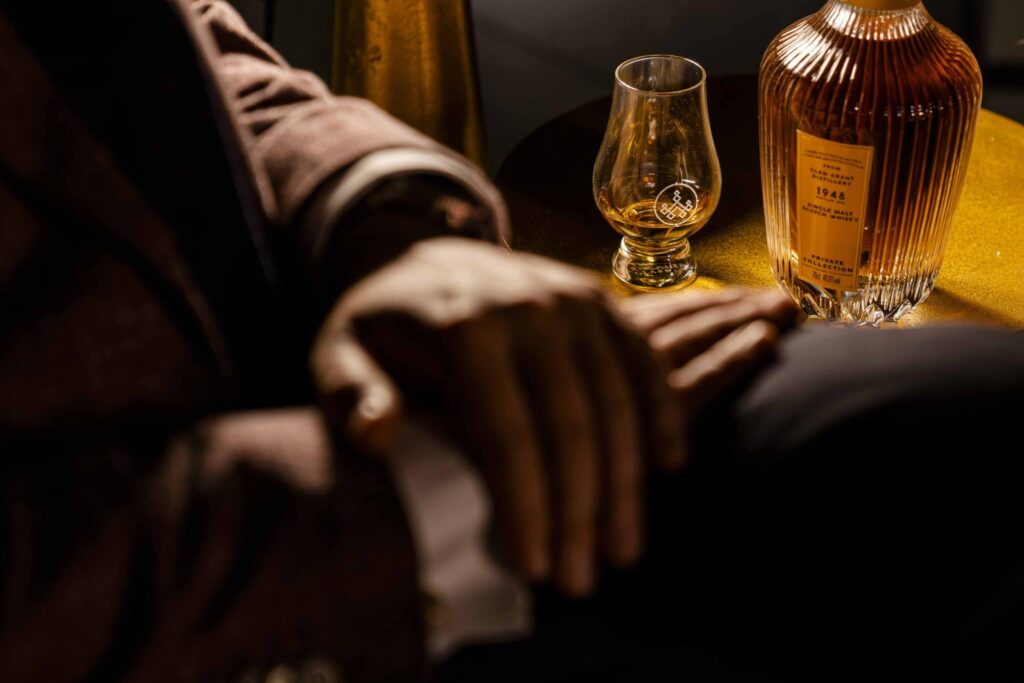
Tomorrow is the day and the doors of the coronaproof business fair MASTERS EXPO open at RAI Amsterdam. Together with whisky expert Michel Kappen, founder of Scotch Whisky Investments, MASTERS will give a refresher course on this centuries-old prized alcoholic beverage.Text: Patrick Stoffer
Image: Scotch Whisky Investments
Michel Kappen: "The origin of whiskey is not in Scotland, as most people think. Around 1100, monks in Ireland discovered a drink they called uisce beatha ("water of life"; ed.), which would later become widely known as whiskey. But it was the Scots who introduced whisky to the market in 1494 and made it big. In 1824, whiskey made its way into the tax system and most illegal distilleries were able to close their doors. In that year, The Glenlivet was the first distillery to obtain a license. It wasn't until 1963 that single malt whiskey entered the market, which is distilled - distilled - by a single batch, pure craft. Its counterpart is blended malt, which is 70% grain, factory-made, and 30% malt.'
'The longer a whisky is aged, the better and more precious it becomes. There has never been a whisky that has been in the barrel as long as this one. And it can be admired and tasted exclusively at MASTERS EXPO. The Gordon & MacPhail Generations Glenlivet that we are bringing to MASTERS EXPO is no less than eighty years old and was bottled in 1940 on cask in the Speyside region. Bottle No. 1 was purchased by Scotch Whisky Investments through Sotheby's in Hong Kong for €166,500. The market value of the remaining bottles (which are almost unobtainable) is €115,000 per bottle and will continue to rise this year!'
Michel Kappen: "You're standing in a liquor store and there's a host of bottles of whiskey in front of you to choose from. What do you look for when you want a good bottle in your hands? A good whisky is at least eighteen years old and is bottled from one and the same barrel, and is therefore not a mixture of different barrels. Single cask is called this, which is always stated on the label. Whisky always starts out colorless and after several years of aging takes on an amber and follow gold color. Often a whisky is also "re-colored," try to stay away from that. My personal favorite distilleries are Springbank, The Balvenie and The Bowmore, single malt of course.'
Michel Kappen: "In Scotland, whisky is the largest export product with an export value of €5.5 billion. Not surprisingly, the country has the most single malt distilleries in the world - 145. To put it in perspective: Ireland has three. The flavor center of Scottish single malt is huge. It is twice as big as all red and white wines put together. Single malt has 450 different scents and flavors, wines have 225. Scotch whisky, according to the official rules, is written without an "e" and the Irish variety with, i.e. whiskey. India is the country where people drink the most whiskey. But it is questionable whether it is really whiskey, since ten times more Black Label is drunk in the country than produced.'
Michel Kappen: "Scotch Whisky Investments is an asset manager in whisky and started in 2007 as a forerunner of alternative investing. Personally, I always compare it to investing in real estate. When there is scarcity, prices rise and vice versa. You can do two things with whisky: consume it and invest in it. The moment more people consume whiskey, scarcity occurs and prices will rise. Scotch Whisky Investments looks at the maturation period and market development. The longer a whisky matures, the more its value increases. First, quality increases because the flavor develops when whisky is in barrel longer. Second, the older the whisky, the scarcer it becomes. This is because it can never be "reproduced" again. Investing with us starts from €100,000 and from €250,000 you join the Scotch Whisky Investors Clubs, where, among other things, you can obtain the most exclusive whisky bottles, older than 40 years. Meanwhile, Scotch Whisky Investments has more than €140 million in assets under management and hopes to be at €1 billion in five years.'
Michel Kappen: "When enjoying a whisky in the evening, there are a few rules you can observe, should you wish to drink according to etiquette. For example, you don't drink whiskey with ice. If you do want to dilute it, put a splash of room temperature water in the glass. You do not drink from a tumbler, but from a refined glass. I don't recommend consuming anything with your whiskey, as it can interfere with the taste. But above all, the most important rule is: drink your whiskey how you like.'
© 2024 MASTERS EXPO. All rights reserved.